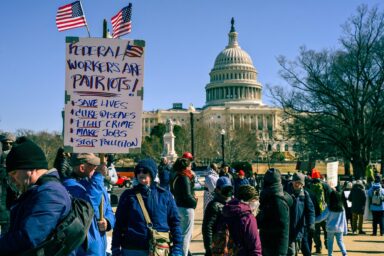PICKS are stories from many sources, selected by our editors or recommended by our readers because they are important, surprising, troubling, enlightening, inspiring, or amusing. They appear on our site and in our daily newsletter. Please send suggested articles, videos, podcasts, etc. to picks@whowhatwhy.org.
|
Listen To This Story
|
Interpol Arrests 3,500 Suspects in Sweeping Cybercrime Operation (Maria)
The author writes, “Interpol, an international police organization, has arrested nearly 3,500 people allegedly connected to cybercrime in a sweeping operation announced on Tuesday. [Approximately] $300 million worth of assets across 34 countries were reportedly seized. The operation, Haechi IV, blocked over 80,000 suspicious bank accounts and warned government officials of new types of scams using AI and fake NFTs. ‘The seizure of USD 300 million represents a staggering sum and clearly illustrates the incentive behind today’s explosive growth of transnational organized crime,’ said Stephen Kavanagh, Interpol’s Executive Director of Police Services.”
Some Trump Fake Electors From 2020 Haven’t Faded Away. They Have Roles in How the 2024 Race Is Run (Reader Steve)
The author writes, “Nearly two years after he signed documents attempting to overturn Donald Trump’s 2020 loss in Nevada, Jim Hindle thanked everyone gathered in a historic Nevada boomtown’s commission chambers and asked them to bear with him while he learned how to oversee elections in rural Storey County. Hindle was another replacement in what was a revolving door of county election officials across Nevada as the 2022 midterms approached. … But Hindle’s tenure in the heavily Republican county is part of a trend across battleground states where fake electors have retained influence over elections heading into 2024.”
Let’s Hope Epic’s Antitrust Win Over Google Is the First of Many Tech Giant Losses (DonkeyHotey)
The author writes, “The big news last week was that a jury in San Francisco had found Google guilty on all counts of antitrust violations stemming from its dispute with Epic Games, maker of the bestselling Fortnite, which had lodged a number of complaints related to how Google runs its Play store, an Android app market with a revenue of about $48bn (£38bn) a year. Why is this interesting? Isn’t it just another case of two tech companies squabbling in a US court? Well, in the first place, something very rare happened — a tech giant actually lost a big case in a US court. Second, the case was decided by a jury, not (as often happens in such cases) by a judge. Third, it showed that venerable antitrust (ie anti-monopoly) laws such as the Sherman Act still work.”
When the New York Times Lost Its Way (Reader Jim)
From The Economist: “Whether or not American democracy endures, a central question historians are sure to ask about this era is why America came to elect Donald Trump, promoting him from a symptom of the country’s institutional, political and social degradation to its agent-in-chief. There are many reasons for Trump’s ascent, but changes in the American news media played a critical role.”
The Nation’s Capital, Built on Water, Struggles to Keep From Drowning (Russ)
From The Washington Post: “While federal Washington is best known for its neoclassical buildings and white marble monuments, the District of Columbia is actually a low-lying delta city like New Orleans, but one constructed on top of settling rock and rubble fill. The buildings that make up the Federal Triangle sit on land reclaimed from Tiber Creek. …In the Tidal Basin, completed in 1897, water has risen four feet over the past century — one foot from rising seas and three feet from its sinking foundation built on fill, according to the National Park Service. But in the next 30 years alone, sea levels will rise another foot, tripling the rate of the previous 100 years.”
Welcome to the Extinction Capital of the World (Laura)
From Vox: “Scores of native Hawaiian species have been disappearing in recent decades, including many plants, birds, and insects. In October, the US Fish and Wildlife Service formally declared 21 species extinct nationwide. Eight of them were Hawaiian birds. There is an extinction crisis playing out worldwide — where as many as 1 million species are creeping toward the edge of existence — but the state of Hawaii is ground zero. It has lost more species than any other state, which is one reason why it’s been dubbed the extinction capital of the world.”
Vase Bought at Goodwill for $3.99 Sells for More Than $100,000 (Dana)
The author writes, “When Jessica Vincent bought a vase at a Goodwill store in Virginia, she had no idea it was designed by Carlo Scarpa, a renowned Italian architect.”




